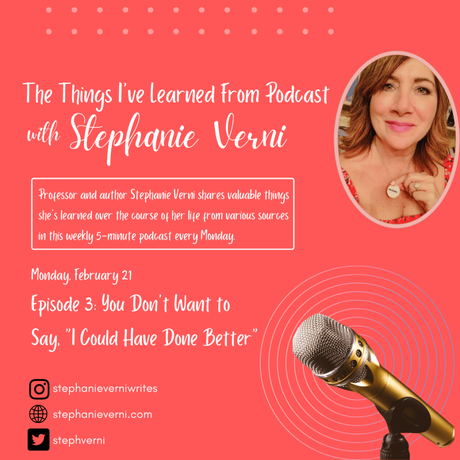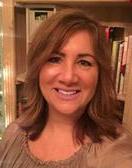
As public speaking is the number one fear in America, with the fear of death coming in second, the truth is, most people would rather die than give a speech.
So here’s this week’s lesson learned, and it was said to me by our former university president, Dr. Kevin Manning. When he and I were talking about public speaking, Dr. Manning shared with me that he used to get nervous when speaking in public, but he quickly got over it when he realized he never wanted to sit down after making a speech and say, “I could have done better.” I had the same philosophy, and I’m going to share it with you by walking through one of my best teaching moments.
Years ago when I first started teaching, I taught part-time at a local community college. My full-time job at the Baltimore Orioles kept me incredibly busy, but my boss was kind enough to allow me to teach evening courses at the college. With locations around the area, I was scheduled to teach a course in public speaking at Fort Meade, an army base in Maryland where satellite courses were taught. I was young—in my twenties—and I’d only been teaching for a couple of years. I fell in love with teaching rather quickly, and now I’ve been teaching for 29 years, which includes my part-time teaching career, as well as my full-time teaching career at Stevenson University since 2008.
So, back to this particular public speaking course. We have to start at the beginning, with me as a student at Towson University in a course where I was required to give a speech. For this particular speech, we were given topics to cover. Mine was “speech anxiety,” something theorists in communication have studied and researched. I spent hours at the library researching this topic, and I think everything that followed was psychosomatic. I was never a comfortable public speaker in my younger days. It always gave me anxiety. My hands would shake, my heart would race, and I’d feel flushed. I was very, very nervous whenever I had to speak in front of people. In fact, my middle school chorus teacher told me once that she was very disappointed that I had not auditioned for the school play, and when she asked me why I didn’t, I told her it was because I had stage fright. In my head, I was petrified. On the day I had to make my college speech on the topic of speech anxiety, everything came to a head. It was a perfect storm of irony. While giving a speech on “speech anxiety,” my hands shook, my heart raced, and I felt like I was going to pass out. After requesting a short pause to get a drink of water, I came back to the podium and, in one of the biggest humiliations and failures of my life, I said out loud to a class of thirty students and my teacher, that I could not finish the speech. I was that affected and riddled with speech anxiety that I couldn’t go on.
The worst was it happened at the end of the spring semester and I had all summer to dwell on this failure. I questioned whether or not I could actually be a communication major. “How can I be a communication major if I can’t give a speech?” I asked my mother, an English teacher. “Because next time you have to give a speech, you will pick a topic that you know and you will be confident with it. You’ll see. It will get better,” my mother said.
Luckily, at 19, I listened to my mother. Some 19-year-olds don’t, but I did. I liked the field of communication and I wanted to succeed in it. She was so right. In a classroom of 100 students, I had to give a speech. I asked to go second (as someone had already garnered the first place spot), and I picked a topic I knew well. I got over my speech anxiety after that, although I’ll never admit that I don’t get nervous. I’m always a little nervous in front of a crowd, but I don’t allow it to debilitate me as it did that time in class.
Fast forward ten years, and now I was the teacher in that classroom at Fort Meade teaching public speaking. A student of mine got up to give her speech. As I do when students speak, I smiled at her and nodded throughout, and she seemed to be doing rather well. Until, deja vu. She stopped speaking in the middle of her speech, put her note cards on the podium, and ran out the door saying she couldn’t finish. She couldn’t finish the speech.
Well, I had a classroom full of military and non-military students in the room. I got up and turned to them and said, “I don’t know if I can get her back in here to finish the speech, but let me see if I can speak with her. If she comes back in the room, I want you to give her a big round of applause and encouragement. I’ll be right back.”
I left the classroom and went out into the hall. She was hunched over, her knees to her chest, lamenting the fact that she was so nervous, she couldn’t finish the speech. I sat next to her and knew I had to tell her my story. The story of my failure and humiliation. That I had been through the exact same thing she was going through now, and that my biggest regret was that I didn’t finish my speech. That I let the fear take over, and that I didn’t conquer it.
She listened, still a little leary of the idea of finishing the speech. But after a few minutes of coaching, of support, and of lifting her up and telling her how I couldn’t even tell she was nervous, she looked me in the eyes.
“Ok. Let me go finish that speech,” she said.
When the two of us walked back in the room, the students gave her a round of applause. She held her head high, positioned herself at the podium, and she finished that speech.
She finished that speech. I couldn’t have been prouder of her. And the students seemed pretty impressed, as well.
It was one of my greatest teaching moments ever. In fact, I now tell my public speaking students my story on Day 1 of class, so that those students who fear giving speeches, know I have been there before. There’s nothing like empathy to build student rapport.
So, what did I learn from my own failure and my student’s success? That we cannot let fear prevent us from tackling a task. We have the power to do it, and as Dr. Manning said, and I often repeat it over and over again in my head, I never want to walk away and say that I could have done better.
Stay positive and bright,
Stephanie

